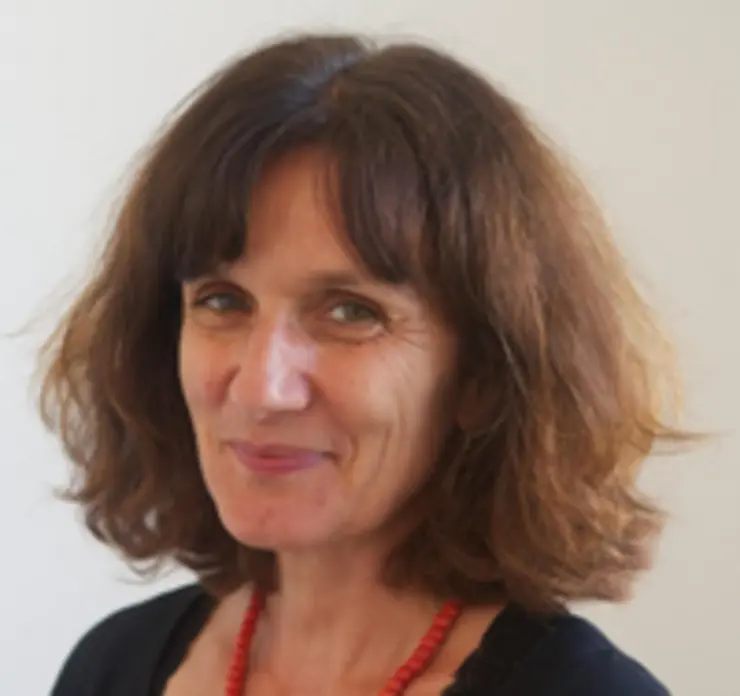- Vita
Renate Dürr has been professor of Modern History at the University of Tübingen since October 2011. From 2006 to 2011, Dürr was professor of Early Modern History at the University of Kassel; prior to that, she worked as an assistant professor in Early Modern History at the University of Frankfurt am Main and was a visiting instructor at several universities, including the University of Basel. In 2006, Dürr published her habilitation thesis on “Politische Kultur in der Frühen Neuzeit: Kirchenräume in Hildesheimer Stadt- und Landgemeinden, 1550-1750”(Political Culture in the Early Modern Period: Ecclesiastical Spaces in Communities in and around Hildesheim, 1550–1750). Her dissertation for the Free University in Berlin dealt with the experience of female house servants in Schwäbisch Hall during the Early Modern period (“Mägde in der Stadt: Das Beispiel Schwäbisch Hall in der Frühen Neuzeit” (Maidservants in the Town: The Example of Schwäbisch Hall in the Early Modern Period)). Dürr began her academic career in Hamburg and Berlin as a student in history and political science.
For more information:
(https://www.uni-tuebingen.de/en/faculties/faculty-of-humanities/departments/geschichtswissenschaft/seminareinstitute/modern-history/staff/early-modern-history-duerr/prof-dr-duerr.html)
- Forschungsschwerpunkte
Renate Dürr’s current research focuses on the history of Jesuit missions within the context of global history. She is especially interested in the reciprocal flow of knowledge between Europe and missions in Asia and Latin America; early modern cultures and theories of translation; and the role of the Jesuits in historical exegesis of biblical texts and the Jesuits’ contribution to the accumulation of knowledge in the age of the Enlightenment. In her publications on the flow of knowledge and culture between the Old and New Worlds, Dürr has examined Jesuit letters and travelogues, which were often published in Der Neue Welt-Bott. She draws on these sources as indicators of the development of Jesuit identity and self-affirmation as well as experiences of “otherness” within the missions. These issues are closely related to the question of their communication with indigenous populations within the mission and their missionary strategies, which Dürr has investigated by looking at the theories of language and translation developed by the Jesuit priest José de Acosta.
- Forschungsprojekt
Global Knowledge, Religious Devotion, and the Making of Enlightenment Europe (book project together with Ulrike Strasser, San Diego)
This project focuses on the Jesuit journal Der Neue Welt-Bott, the premier Catholic missionary periodical in German-speaking lands and a household name among scholars working on the Society of Jesus. Modeled after the famous Lettres Edifiantes et Curieuses, Der Neue Welt-Bott initially featured translations of French letters but soon went beyond the French model and materials to become the first serialized publication of German Jesuit reports from all over the world in German. The periodical comprises 812 texts, arranged in 40 parts (with some scholars doubting the existence of parts 39 and 40) and published in five volumes between 1726 and 1761 (or 1758 for said scholars), amounting to over 4,500 densely printed folio pages. It further contains images, particularly new maps, cultural commentary and rich explanatory materials, such as a table that converts the Chinese calendar into a Christian framework.
Iconic figures like Bacon, Voltaire or Diderot have cast a long shadow on our understandings of the Enlightenment and its legacy, whether viewed positively in terms of rationality and modernity, or negatively in terms of European claims to superiority and dominance. Western European anti-clerical thinkers are still widely seen as the Enlightenment’s standard-bearers. By contrast, this project approaches the Enlightenment from the Ottoman borderlands of the Habsburg Empire and a clerical context. We do so by examining a source base that has been widely yet uncritically used by historians. On the margins of Christian Europe, German Jesuits compiled missionary reports from into The New World Messenger (Der Neue Welt-Bott) an extraordinary publication of global scope as yet unexamined as a collection. It exemplifies the deep imbrication of religion and science, as well as reason and emotion, that shaped the production of knowledge and European self-understandings in the Enlightenment. It also reveals how the missionary encounter with the ‘non-European world’ – especially with the indigenous men and women who supplied extensive information about fauna, flora, geography, and their cultures – shaped the making of “European” science and epistemologies.
- Publikationen
- Mapping the miracle: empirical approaches in the 18th century Exodus debate, in: Past and Present 237 (2017), S. 53-91
- Found in Translation – the search for similarities between cultures at the time of the Reformations, in: Archive of Reformation History 108 (2017), S. 191-201
- Akkommodation und Wissenstransfer. Neuerscheinungen zur Geschichte der Jesuiten in der Frühen Neuzeit, in: Zeitschrift für historische Forschung 44 (2017), S. 487-509
- Early modern translation theories as mission theories: A case study of José de Acosta “De procuranda indorum salute” (1588), in: Cultures of Communication, Theologies of Media in Early Modern Europe and Beyond, hrsg. von Helmut Puff/ Ulrike Strasser/ Christopher Wild, Toronto 2017, S. 209-227
- Reflection on Language in Christian Mission: The Significance of Communication in the Linguistic Concepts of José de Acosta SJ and Antonio Ruiz de Montoya SJ, in: Antje Flüchter/ Rouven Wirbser (ed.), Translating catechisms, Translating Culture. The Expansion of Catholicism in the Early Modern World, Leiden/ Boston 2017, S. 50-91
- Locating Paradise in China: Joseph Stoecklein’s Chronology (1729) in Context, in: German History (2018)
- “Das Paradies im fernen Osten: die Chronologie Joseph Stöckleins S.J. (1729) als Kommentar zur Zeitgeschichte“, in: Religiöses Wissen im vormodernen Europa – Schöpfung, Mutterschaft, Passion, ed. by Renate Dürr, Annette Gerok-Reiter, Andreas Holzem, Steffen Patzold, Paderborn 2018


